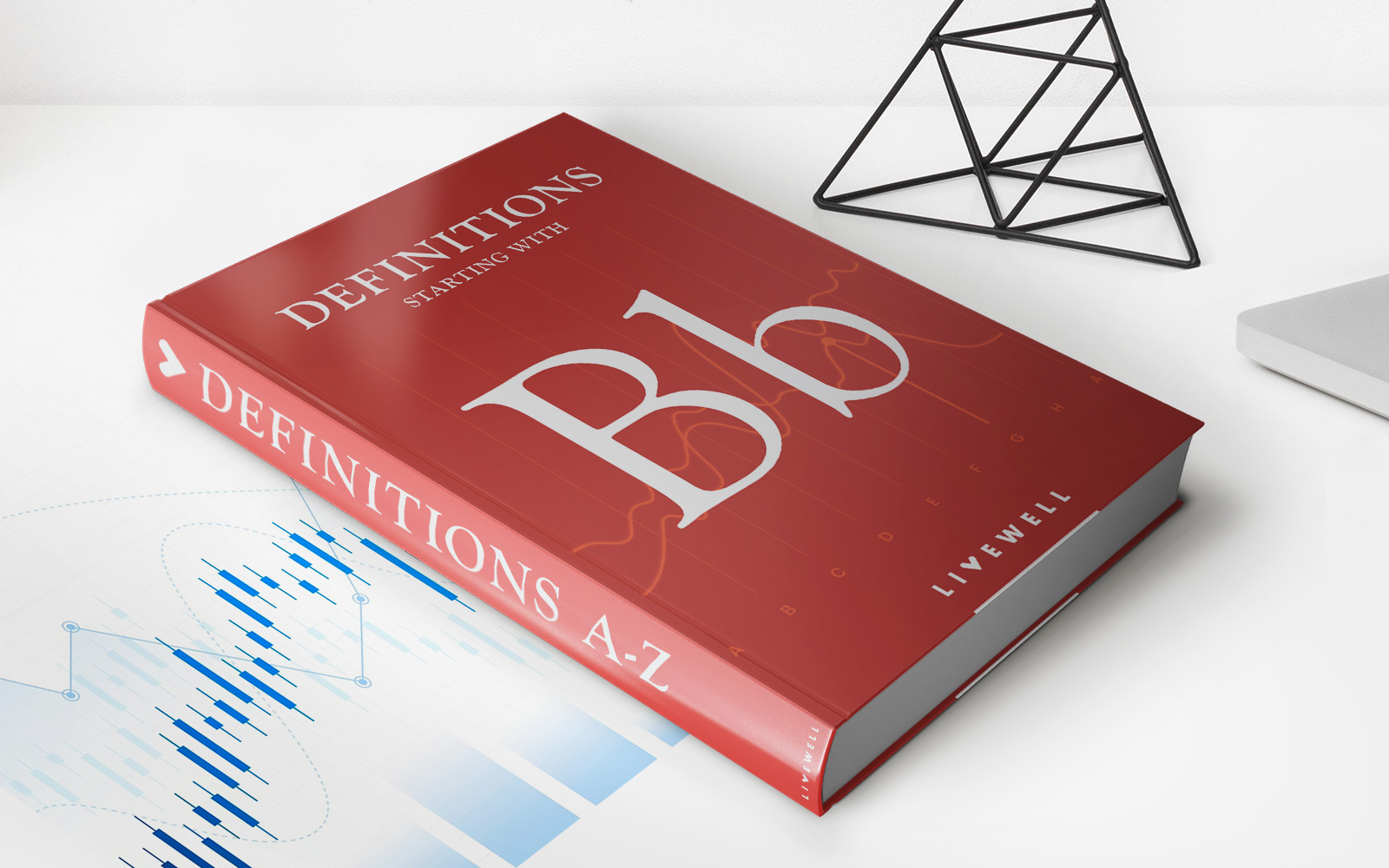

Finance
How Long Should Your Life Insurance Policy Be?
Published: October 14, 2023
Ensure financial security for the long term with the right life insurance policy duration. Discover the ideal length for your coverage and protect your loved ones' future.
(Many of the links in this article redirect to a specific reviewed product. Your purchase of these products through affiliate links helps to generate commission for LiveWell, at no extra cost. Learn more)
Table of Contents
Introduction
Life insurance is an essential financial tool that provides a safety net for your loved ones in the event of your untimely demise. It ensures that they are financially protected and can maintain their standard of living even when you are no longer around to support them. One crucial decision you need to make when purchasing life insurance is determining the length of the policy.
The length of your life insurance policy depends on various factors such as your financial goals, current and future obligations, and the needs of your dependents. It is a decision that requires careful consideration to ensure you choose the right policy duration that aligns with your specific circumstances.
In this article, we will explore the key factors to consider when choosing the length of your life insurance policy. We will delve into short-term and long-term policies, discuss how to determine the appropriate duration for your specific needs, and highlight the importance of periodically reviewing and adjusting your policy as your circumstances change.
By understanding the different options available and considering your unique situation, you can make an informed decision that provides the optimal level of protection for your loved ones.
Factors to Consider When Choosing the Length of Your Life Insurance Policy
When deciding on the length of your life insurance policy, there are several important factors to consider. These factors will help you determine the most suitable duration that aligns with your financial goals and the needs of your loved ones. Let’s explore these factors in detail:
- Financial Obligations: Consider your current financial responsibilities and future obligations. If you have outstanding debts such as a mortgage or car loan that will take several years to repay, it might be wise to choose a policy duration that covers the repayment period.
- Dependents’ Needs: Evaluate the financial needs of your dependents. If you have young children, you may want to choose a policy that provides coverage until they are financially independent, such as when they finish college or enter the workforce.
- Income Replacement: Determine how long your income needs to be replaced in the event of your death. If your loved ones rely heavily on your income for their daily expenses, you may opt for a policy that provides coverage until your expected retirement age.
- Life Stage: Your life stage plays a crucial role in deciding the length of your life insurance policy. If you are young and just starting a family, choosing a longer-term policy could provide coverage throughout your working years and beyond. On the other hand, if you are nearing retirement, a shorter-term policy may be more suitable.
- Availabiliy of Other Assets: Consider any other assets or investments that can be used to support your loved ones in case of your passing. If you have substantial savings or investments, you may opt for a shorter-term policy as these resources can help meet your family’s financial needs.
These factors will help you assess your financial situation and determine the length of coverage that best meets your needs. It is crucial to take the time to evaluate each factor and consult with a financial advisor who can provide expert guidance tailored to your specific circumstances.
Short-Term Life Insurance Policies
Short-term life insurance policies offer coverage for a specific period, usually ranging from one to ten years. These policies are ideal for individuals who have temporary financial obligations or anticipate a change in their circumstances in the near future. Let’s explore the benefits and considerations of short-term life insurance policies:
Benefit of Short-Term Policies: One of the main advantages of short-term life insurance policies is their affordability. Since the coverage period is relatively shorter, premiums tend to be lower compared to long-term policies. This can be beneficial if you have a limited budget or specific financial goals that will be met within a short timeframe.
Considerations for Short-Term Policies: While short-term policies offer flexibility and cost-effectiveness, there are a few important considerations to keep in mind. If you have dependents who will require financial support beyond the policy’s duration or if you anticipate health issues that may make obtaining coverage later more challenging, a short-term policy may not be the best choice for you.
Before selecting a short-term policy, carefully assess your current and future financial needs. Consider factors like outstanding debts, dependents’ future expenses, and your overall financial stability. If you anticipate these needs to extend beyond the coverage period of a short-term policy, it may be more suitable to opt for a long-term policy instead.
Furthermore, it’s essential to review your short-term policy regularly and update it as needed. As your circumstances change, you may need to extend the coverage or switch to a long-term policy to ensure adequate protection for your loved ones.
Understanding the advantages and limitations of short-term life insurance policies will help you make an informed decision. Evaluate your specific needs and consult with a financial advisor to determine whether a short-term policy is the right choice for you.
Long-Term Life Insurance Policies
Long-term life insurance policies provide coverage for an extended period, typically spanning multiple decades or even a lifetime. These policies are well-suited for individuals looking for comprehensive and continuous protection for their loved ones. Let’s explore the benefits and considerations of long-term life insurance policies:
Benefit of Long-Term Policies: One of the main advantages of long-term life insurance policies is their long-lasting coverage. With a long-term policy, you can ensure that your dependents are protected financially for an extended period, regardless of any changes to your health or financial situation. These policies are especially valuable if you have long-term financial obligations, such as providing for children or paying off a large mortgage.
Considerations for Long-Term Policies: While long-term policies offer comprehensive coverage, there are a few important considerations to keep in mind. First, the premiums for long-term policies tend to be higher compared to short-term policies. However, this higher cost is justified by the extended coverage period and the peace of mind it provides.
Secondly, it’s crucial to carefully assess your long-term financial commitments before selecting a policy duration. Consider factors like the duration of your mortgage, the age at which your children will become financially independent, and your expected retirement age. By aligning the policy duration with these milestones, you can ensure that your loved ones are financially protected during critical periods of their lives.
Lastly, keep in mind that long-term policies may offer options for building cash value over time. These policies may have an investment component that grows over the years, providing you with a potential source of additional funds or living benefits. However, it’s important to carefully review the terms and conditions of these policies and consult with a financial advisor to determine if they align with your financial goals.
Long-term life insurance policies provide a reliable and lasting safety net for your loved ones. By carefully considering your long-term financial obligations and consulting with a financial advisor, you can select a policy duration that meets your needs and provides the necessary financial protection.
Determining the Length of Your Life Insurance Policy
Determining the length of your life insurance policy requires a thoughtful assessment of your current and future financial circumstances. By considering various factors, you can choose a duration that aligns with your goals and provides adequate protection for your loved ones:
Evaluate Your Financial Goals: Start by defining your financial goals and objectives. What do you want to achieve with your life insurance coverage? Are you primarily concerned with providing income replacement for your family or paying off debts? Understanding your financial goals will help you determine the appropriate length of coverage.
Assess Your Current and Future Obligations: Consider your current financial obligations, such as mortgage payments, outstanding debts, and the needs of your dependents. Additionally, think about future obligations like college tuition and retirement savings. Your life insurance policy should encompass these obligations, providing financial support during critical periods.
Consider Life Events: Anticipate significant life events that may impact your financial needs. If you plan to start a family or launch a business in the near future, you may require coverage that extends for a longer duration. It’s important to consider both short-term and long-term life events when deciding on the length of your policy.
Your Age and Health: Your age and health play a critical role in determining the length of your life insurance policy. As a general rule, purchasing coverage when you are younger and healthier can result in lower premiums and more options for longer-term policies. However, if you have pre-existing health conditions, it may be more challenging to secure coverage with a longer duration. Consider these factors when making your decision.
Consult with a Financial Advisor: Seeking the advice of a financial advisor is invaluable when it comes to choosing the length of your life insurance policy. They can guide you through the decision-making process, assess your financial situation, and provide recommendations tailored to your specific needs. A financial advisor will help you strike the right balance between cost, coverage, and duration.
By carefully evaluating your financial goals, obligations, life events, and consulting with experts, you can determine the optimal length of your life insurance policy. It’s crucial to periodically review and reassess your policy as your circumstances change, making adjustments if necessary to ensure adequate coverage for your loved ones.
Reviewing and Adjusting Your Life Insurance Policy Periodically
Once you have chosen the length of your life insurance policy, it is important to recognize that your financial circumstances and needs may change over time. Periodically reviewing and adjusting your policy ensures that it continues to align with your current goals and provides the necessary level of protection. Here’s why regularly reviewing and adjusting your life insurance policy is crucial:
Changes in Financial Situation: Life is dynamic, and your financial situation may evolve over time. You may experience changes in income, acquire new assets, or have different financial obligations. Periodic reviews of your policy allow you to assess if the coverage amount and duration still meet your current needs.
Life Milestones: Significant life milestones such as getting married, buying a home, having children, or starting a business can significantly impact your financial needs. Reevaluating your life insurance policy during these milestones ensures that the coverage aligns with your new responsibilities and obligations.
Health Changes: Your health can also change over time, which may affect your insurability and the premiums you are offered. Periodic reviews of your policy allow you to assess if any adjustments are needed based on changes in your health conditions.
Beneficiary Updates: It is important to regularly review and update the beneficiaries listed on your life insurance policy. Changes in family dynamics, such as marriage, divorce, or the birth of children, may warrant updating your policy and ensuring that the designated beneficiaries are current.
Policy Updates and Enhancements: Insurance companies often introduce new policy options and features that could better suit your needs. Periodic policy reviews give you the opportunity to explore additional options or upgrades that may offer improved coverage or more favorable terms.
It is recommended to review your life insurance policy at least once a year or whenever a significant life event occurs. During the review, consult with your financial advisor or insurance agent to assess if any adjustments or changes are necessary. They can provide guidance on whether the policy duration should be extended, coverage amounts should be modified, or additional policies should be considered.
Remember, your life insurance policy should adapt to your changing circumstances to ensure it continues to provide the intended financial protection for your loved ones. By periodically reviewing and adjusting your policy, you can have the peace of mind knowing that your coverage remains appropriate and effective.
Conclusion
Choosing the length of your life insurance policy is a crucial decision that requires careful consideration. By evaluating factors such as your financial obligations, dependents’ needs, and life stage, you can determine the most suitable duration that aligns with your goals and provides adequate protection for your loved ones.
Short-term life insurance policies offer flexibility and affordability, making them ideal for individuals with temporary financial obligations or those expecting changes in their circumstances in the near future. On the other hand, long-term life insurance policies provide comprehensive and continuous coverage, ensuring ongoing financial protection throughout critical periods of your life.
When determining the length of your life insurance policy, it is essential to regularly review and adjust it to accommodate any changes in your financial situation, life milestones, health conditions, and beneficiary designations. Periodic reviews, ideally with the guidance of a financial advisor or insurance agent, will help ensure that your coverage remains current and aligned with your evolving needs.
Remember that life insurance is not a one-size-fits-all solution. Each individual’s circumstances are unique, and what is suitable for one person may not be the best option for another. Take the time to evaluate your specific needs, consult with professionals, and carefully consider all relevant factors before making your decision.
By choosing the appropriate length of your life insurance policy, you can provide your loved ones with the financial protection they deserve and the peace of mind you desire knowing that they will be taken care of after your passing.














